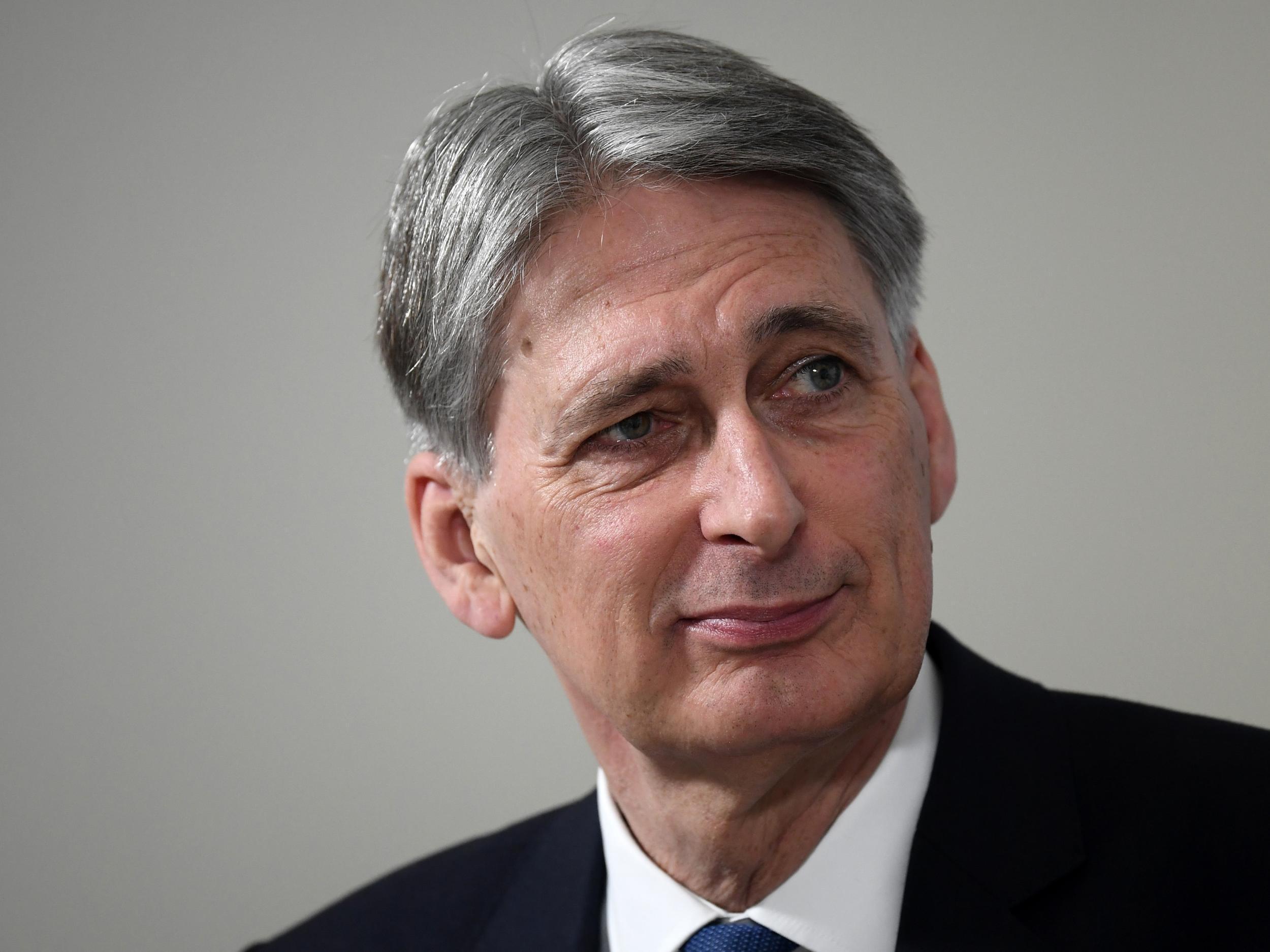Brexit: Ports could plunge into chaos if UK crashes out of EU without deal, Philip Hammond admits
The Chancellor accepted the British economy has been 'overshadowed' by Brexit negotiations

Your support helps us to tell the story
From reproductive rights to climate change to Big Tech, The Independent is on the ground when the story is developing. Whether it's investigating the financials of Elon Musk's pro-Trump PAC or producing our latest documentary, 'The A Word', which shines a light on the American women fighting for reproductive rights, we know how important it is to parse out the facts from the messaging.
At such a critical moment in US history, we need reporters on the ground. Your donation allows us to keep sending journalists to speak to both sides of the story.
The Independent is trusted by Americans across the entire political spectrum. And unlike many other quality news outlets, we choose not to lock Americans out of our reporting and analysis with paywalls. We believe quality journalism should be available to everyone, paid for by those who can afford it.
Your support makes all the difference.Philip Hammond has admitted UK ports could be plunged into chaos if the country crashes out of the EU without a deal maintaining customs arrangements similar to those in place now.
The Chancellor warned of “significant disruption” if trucks entering the UK are held for even minutes more, as he revealed the UK has had only “limited” engagement with neighbours like Ireland and France on preparing for Brexit.
He also accepted the UK economy has been “overshadowed” by Brexit uncertainty, and admitted that even if the UK does get a customs deal with Europe it is unlikely to be as good as terms currently enjoyed.
His frank words comes as it emerged the next round of Brexit talks will be delayed, so that they happen after a major speech on withdrawal expected from Theresa May.
Mr Hammond was asked at the Lords Economic Affairs Committee whether Britain's ports, like Dover, were ready to deal with additional inspections after Brexit, replying: “No, it is clearly not.
“Dover operates as a flow-through port and the volumes of trade at Dover could not be accommodated if goods had to be held for inspection. Even if they were only held for minutes, it would still impede the operation of the port.
“Anything that caused delay in vehicles exiting the port, delay in vehicles offloading, would cause significant disruption to patterns of movement.”
He explained work is under way on contingency arrangements to try to maintain smooth operations even if the UK crashes out of the EU without a deal.
But he said: “We have had less engagement than we would like with customs counterparts in our immediate neighbours at the technical level, both to discuss possible deal scenario challenges and no deal scenario challenges.”
Speaking more broadly about Brexit, the Chancellor spelled out how he thinks the negotiations – accepting there is a lack of clarity around them – had impacted on British growth.
He said: “Our economy was in a good place, it has inevitably been overshadowed by the uncertainty of the Brexit negotiating process.
“The quicker we can generate some clarity about the future for business and consumers the better, so that we can get back to the business of perusing what I think looked like a very positive outlook for the economy in early 2016.”
Mr Hammond said he thought it would be possible for the UK to maintain frictionless borders with the EU during a transition period, as long as the UK refrained from implementing new trade deals.
But he was less hopeful about the prospects of smooth border trade in the long term after the transition.
He said: “I don’t think anybody is looking for a better arrangement than there is now and it may be that it cannot be as frictionless as it is now in a long term settlement, because of the desire to negotiate third country trade deals.
“But the design challenge is to use technology to minimise the friction to a level that is acceptable to business.”
It emerged on Tuesday that Brexit negotiations will now not resume until about September 25, despite British and EU officials having been due to meet in Brussels next Monday.
The delay follows suggestions that Theresa May is planning a major public speech towards the end of next week that will finally flesh out her exit strategy.
It is thought Ms May is preparing to try to reassure business and Brussels by setting out that any transitional agreement must be “as close as possible” to current relations with the EU.
Downing Street has been considering several European venues for the speech and is said to have pencilled in September 22 as a possible date.
Join our commenting forum
Join thought-provoking conversations, follow other Independent readers and see their replies
Comments